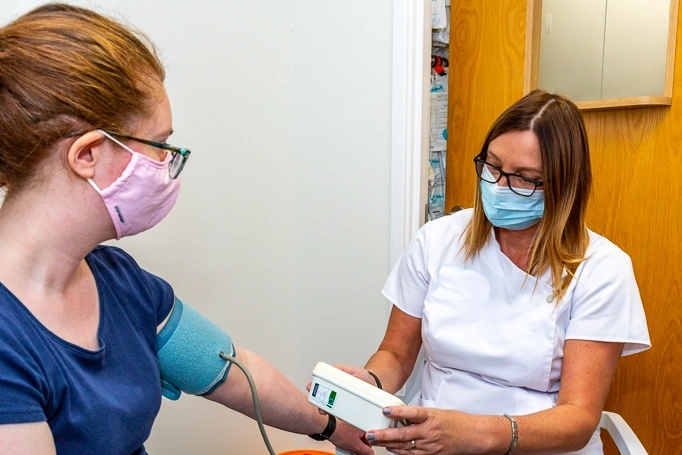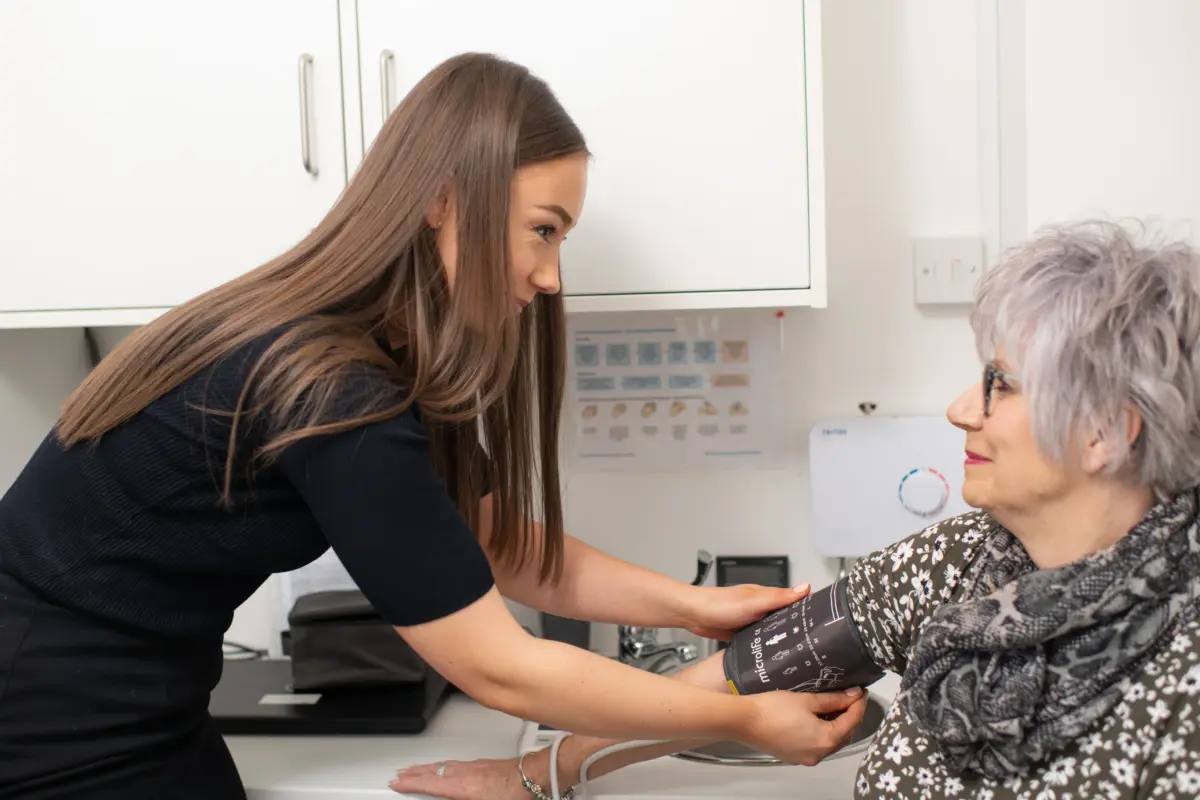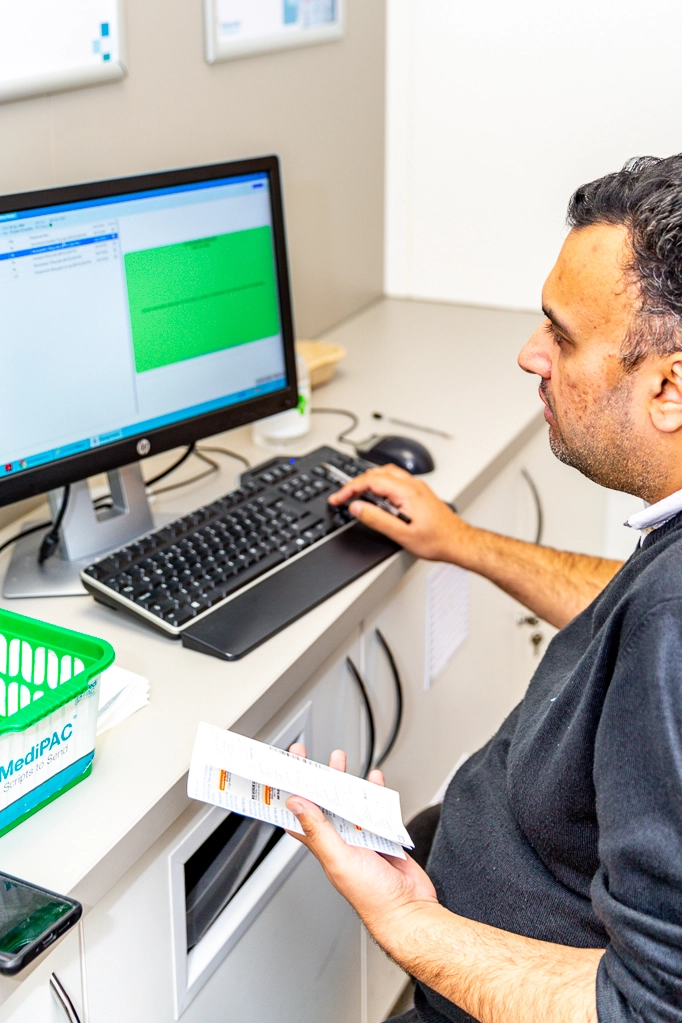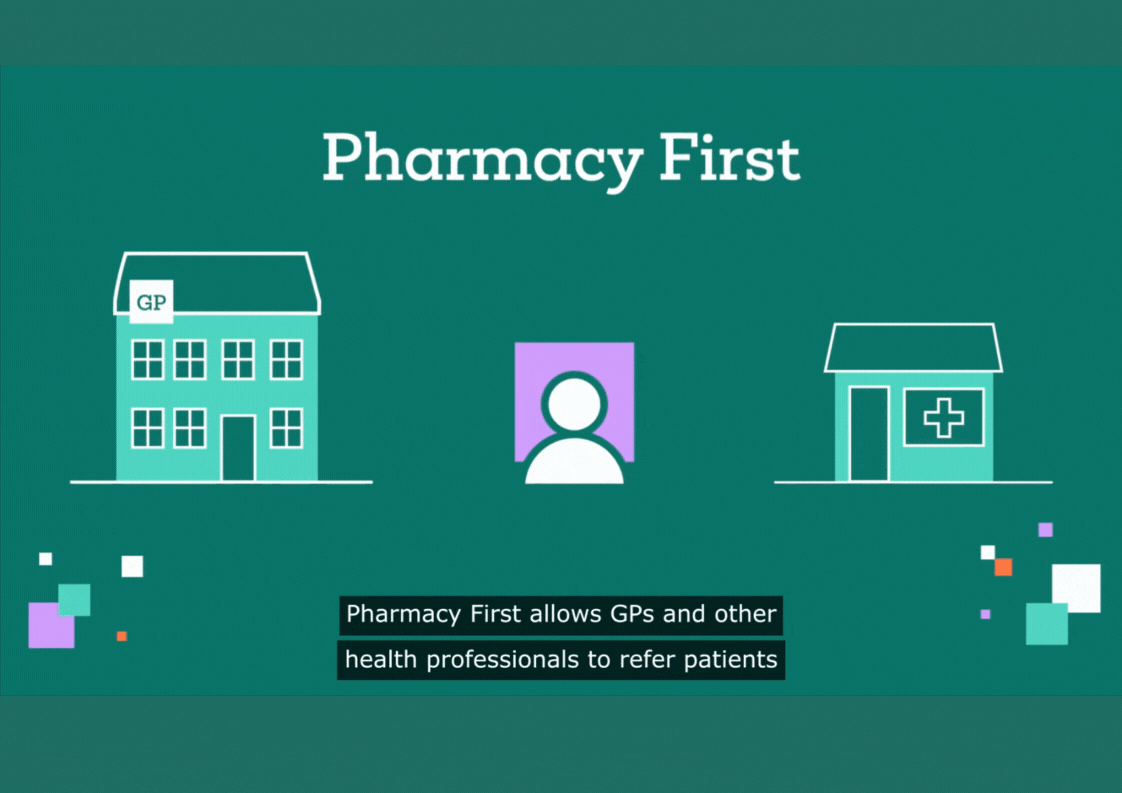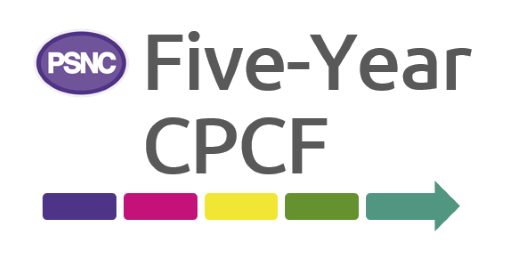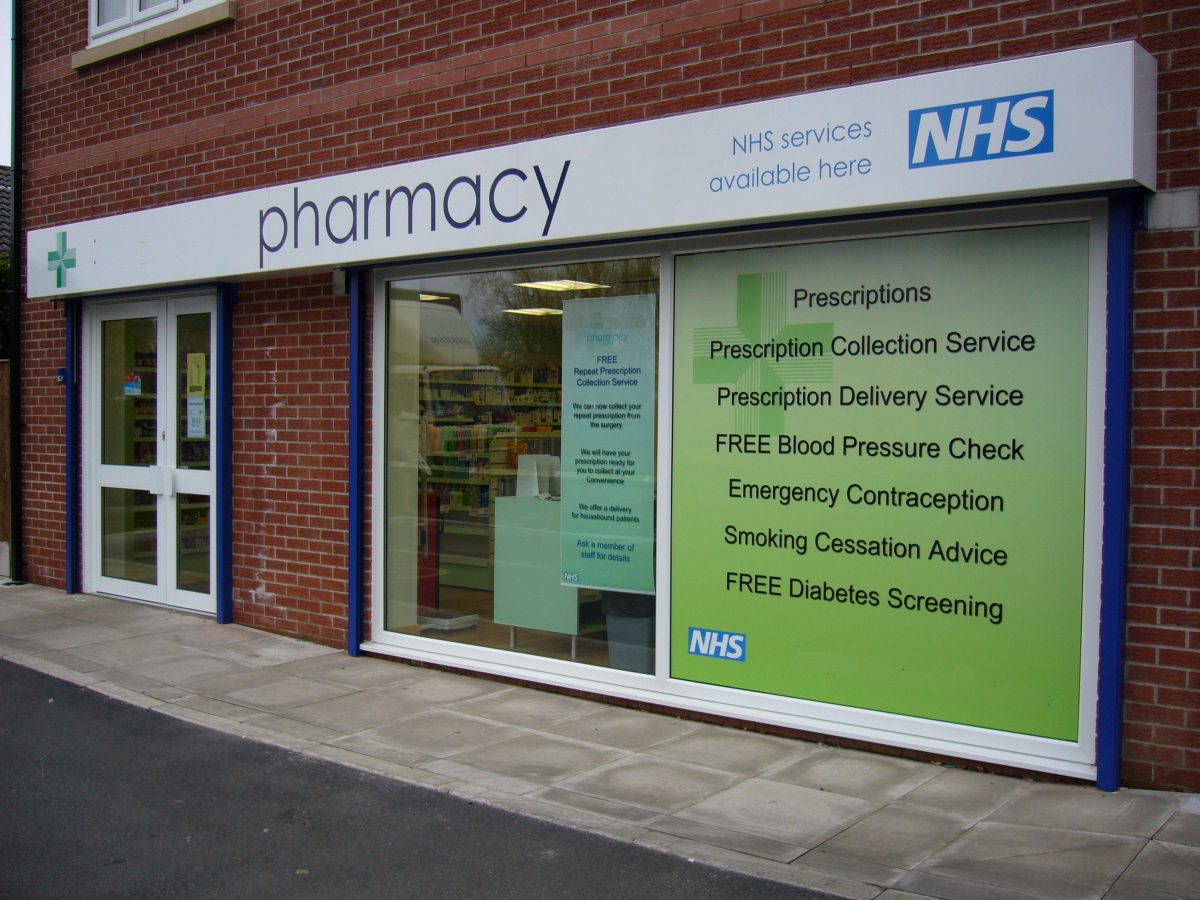Discharge Medicines Service – FAQs
Published on: 29th December 2020 | Updated on: 10th June 2022
This page contains the answers to Frequently Asked Questions (FAQs) on the Discharge Medicines Service (DMS).
Additional FAQs will be added as pharmacy teams get to grips with the service requirements and start to pose further questions about the DMS.
If you have a question about the service which is not answered by the FAQs below or the main content on the service on the DMS page of this website, please email the Services Team.
Page last updated: 8th March 2021
Click on a heading below for more information.
Q. Do all pharmacies, including distance selling pharmacies, have to provide the DMS?
Yes. The DMS is an Essential service and all community pharmacies on the Pharmaceutical List must provide it.
Q. Does the DMS replace TCAM referrals?
Yes. The DMS replaces the activity which pharmacy contractors would previously have undertaken when they received a Transfer of Care Around Medicines (TCAM) referral, however the information received in the referral from the Trust may not vary from what was previously received in TCAM referrals.
Q. How many referrals for the DMS will most pharmacies receive?
The number of referrals will inevitably vary from pharmacy to pharmacy, even when the service is fully mature, as the patient profile of individual pharmacies and the likelihood of their patients being admitted to hospital and then being referred to the DMS at discharge will vary. At the commencement of the service in early 2021, not all hospitals are yet ready to make referrals to the service, so some pharmacies will not start to receive referrals on a regular basis until local Trusts have engaged with the service. Both these factors make it difficult to accurately model the likely number of referrals that an average pharmacy will receive, once the service has fully matured, but our current best estimate is around 12 referrals per year.
Q. Must pharmacies have a consultation room to provide the DMS?
Distinct from the DMS, all pharmacies must now have a consultation room meeting the set standards. The only exceptions to this are set out in the NHSE&I regulations guidance.
For DMS, the legal requirements for the service are set out in the Pharmaceutical Services regulations and they are expanded upon in the DMS chapter of the NHSE&I regulations guidance, which says:
8.4.2. Premises requirements
Paragraph 28A, Schedule 429 details the premises’ requirements in respect of consultation rooms for pharmacy contractors. As a prerequisite to the provision of the NHS DMS, all pharmacy contractors must ensure that they are compliant with these premises’ requirements, in particular ensuring that the duty of confidentiality is met (paragraph 22C(5)(a), Schedule 4). Further information is provided in Chapter 11 on premises’ requirements in respect of consultation rooms.
The DMS became an Essential service on 15th February 2021, so it must be provided by all contractors. It is therefore necessary for DMS consultations to be undertaken in a consultation room compliant with the requirements or via telephone or video consultation, where those remote options are chosen to meet the need of the patient or because NHSE&I have agreed the pharmacy is too small for a consultation room to be fitted.
Q. Is there mandatory training required for pharmacists and pharmacy technicians providing the service?
Pharmacists and pharmacy technicians providing the service need to be trained on how the service will operate and their role in providing it. There is no requirement to undertake a specific training programme, but reading the NHS England and NHS Improvement regulations guidance and the DMS Toolkit will provide key information that professionals need to understand.
The CPPE DMS training programme will also support professionals to understand the service and their role within it. All pharmacists and pharmacy technicians that will provide all or part of the service need to complete the DMS Declaration of Competence to demonstrate that they have the necessary knowledge and competence to provide the service. A copy of the completed Declaration of Competence should be given to the pharmacy contractor.
Q. Which types of patients will be offered a referral to the DMS?
The DMS Toolkit contains advice for Trusts on which patients would benefit most from referrals, which has been derived from the experience of Academic Health Science Networks and hospitals implementing transfer of care around medicines schemes across England. Patients that may benefit the most from the service include those taking high-risk medicines, those who have had changes made to their medicines regimen while in hospital and those who have been prescribed new medicines.
Q. How will the hospital pharmacy team know which pharmacy to refer a patient to?
When patients are asked to consent to the referral being made, the hospital pharmacy team will ask which is their chosen pharmacy.
Q. Will patients living in care homes be offered a referral to the DMS?
If the staff at a Trust believe a patient who ordinarily lives in a care home would benefit from a DMS referral, then like any other patient, a referral may be offered to them. It is also possible that Trust staff will refer care home patients to the Primary Care Network clinical pharmacy team that provide support to the care home where the patient lives.
Q. How will referrals be received at the pharmacy?
Trusts must make referrals using a secure electronic message. This may be via systems such as PharmOutcomes and Refer to Pharmacy or it may be via NHSmail. Your Local Pharmaceutical Committee will be able to advise on what approach individual hospitals in your area are taking to making referrals.
Q. What constitutes a referral for the DMS?
The receipt of hospital discharge summaries or discharge letters from an NHS Trust via a secure electronic message must be responded to as a DMS referral. While it is best practice for the discharge information sent to the pharmacy by the Trust to specifically refer to the DMS, this is not a requirement in order that the information is treated as a DMS referral.
Q. What is the minimum information which should be included in the hospital referral (the minimum dataset)?
DMS referrals from Trusts should contain the following information, as a minimum:
- The demographic and contact details of the person and their registered general practice (including their NHS number and their hospital Medical Record Number);
- The medicines being used by the patient at discharge (including prescribed, over‑the‑counter and specialist medicines, as there may be medicines interactions), including the name, strength, form, dose, timing, frequency and planned duration of treatment for all and the reason for prescribing;
- How the medicines are taken and what they are being taken for;
- Changes to medicines, including medicines started or stopped, or dosage changes, and reason for the change; and
- Contact details for the referring clinician or hospital department, to use where the pharmacy has a query.
Ideally, the referral should also contain the hospital’s Organisation Data Service (ODS) code.
Q. Can I provide the DMS and make a claim for completion of the service if the referral from the Trust does not include all of the mandatory information?
Yes. The service must be provided where a referral is made, but where essential information is missing from the referral, the contractor will need to contact the Trust to obtain that information. Where mandatory information is missing from a referral, this should be noted in the summary information which is reported to the NHSBSA as part of the contractor’s claim via the MYS portal. This reporting will provide data to help the NHS to address any frequent missing referral data issues at Trusts.
Q. If a patient provides their pharmacy with a copy of their discharge information, can that trigger provision of the DMS?
No. The receipt of a discharge summary from patient is not a referral from a provider of NHS services and therefore is not eligible for provision of the DMS.
Q. Can general practices refer patients to community pharmacies for the DMS?
No.
Q. Do the three stages of the service have to be provided in strict order?
No. The three stages of the service could occur in parallel, depending on the timing of the referral being received by the pharmacy and the patient’s individual circumstances. Normally stage 3 (the patient consultation) will occur when the first post-discharge prescription is received – this is usually one week to one month post-discharge, dependent on the quantity of medicines supplied by the hospital at discharge. However, if the patient contacts the pharmacy in advance of the first post-discharge prescription being received, it may be deemed appropriate to provide stage 3 at that time. In that circumstance, there may be a need for a further discussion with the patient when the first prescription is received if issues are spotted on that prescription, which need to be clarified with or communicated to the patient.
Q. Who should I contact at the referring Trust if I have questions about the referral?
The referral message should include contact details for the referring clinician or hospital department, which you can use where you have a query.
Q. How do I provide the service to a patient if they are housebound?
The third stage of the service involves a discussion with the patient and/or their carer to check their understanding of what medicines they should now be taking/using, when they should be taken/used and any other relevant advice to support medicines taking/use. Where the patient and/or their carer cannot attend the pharmacy for this discussion, e.g. if they are housebound or convalescing following surgery, this can be provided in another way which meets the patient’s/carer’s needs, e.g. by telephone or video consultation.
Q. Do I need to obtain consent to provide the Discharge Medicines Service?
NHS trusts are required to develop a system of consent to ensure that patients are fully involved in decisions about their care following discharge and have agreed to the whole DMS pathway. Where the referral is for a patient who regularly uses the pharmacy, the receipt of a referral can be accepted as implied consent by the patient agreeing to have the referral made to the pharmacy.
Where a referral is received for a patient who is new or unknown to the pharmacy, the pharmacist or pharmacy technician may need to contact the NHS trust and/or the patient for more information; and to check that the patient does wish to use this pharmacy for the DMS. In this scenario consent can be confirmed verbally and could then be recorded in the pharmacy clinical service record.
Patients, like in any other service, are free to withdraw their consent to receive the service at any point in the service.
Q. Do pharmacists or pharmacy technicians have to view the patient’s NHS Summary Care Record (SCR) when undertaking DMS?
The NHSE&I regulations guidance says that within stage 1 of the DMS, the pharmacist or pharmacy technician should:
Compare the medicines the patient has been discharged on with those they were taking at admission. This should include all medicines and not just those that are taken orally. This will include reference to the patient’s medication record and may include reference to the patient’s summary care record (SCR).
If the patient regularly uses the pharmacy, it is likely that the PMR alone will provide an adequate information source to compare the pre-admission and post-discharge regimens. Viewing the patient’s SCR may be necessary where the patient has not used the pharmacy for some time or has never used the pharmacy before. The service requires pharmacists and pharmacy technicians to make a judgement on whether they need to access the SCR; there is no absolute requirement to review the SCR in all cases.
Q. When providing the DMS, do contractors need to obtain consent from the patient to look at their Summary Care Record (SCR), or is consent implied by the patient agreeing for the pharmacy to have their discharge summary for this service?
If access to SCR is necessary, consent would still be required from the patient.
Q. Do contractors need to obtain the patient’s consent to discuss any matters identified during provision of the service with the patient’s general practice or PCN clinical pharmacist?
Anything that arises during the provision of the DMS and then needs to be addressed with the general practice forms part of the service and the regulations place the contractor under a duty to act to seek to address the issue. Due to that contractual responsibility, there is no need for explicit patient consent prior to making contact with the general practice or the PCN clinical pharmacist. However, if the issues arise in a conversation with the patient, it would be practical and courteous to verbally seek consent from them at that time. This could occur in the flow of the conversation, where the professional identifies an issue and explains that they will need to speak to the practice to clarify the matter, after which they will revert to the patient. There would be no need for consent to be evidenced in writing.
Q. What should I do if the first post-discharge prescription does not reflect the regimen at discharge, e.g. new medicines initiated in hospital have not been included?
In this circumstance, you should contact the patient’s general practice or the clinical pharmacy team within the Primary Care Network to highlight the discrepancy. Items may be missing from the new prescription for several reasons, including because the patient’s general practice record has not yet been updated following their discharge from hospital, or alternatively the patient’s medication may have been changed since discharge. A discussion with the general practice or clinical pharmacist can ensure the correct regimen is identified and then you can make sure the patient is also clear about the medicines they should be using.
Q. How can I identify the first post-discharge prescription for patients for whom a DMS referral has been received?
The patient’s PMR should be annotated with a note about the DMS referral, so that this is visible when viewing the patient’s record or dispensing prescriptions for them. PMR systems all have the ability to add alerts to patient records to allow for this.
Q. Can I undertake stage 3 of the DMS with another person, rather than the patient?
Stage 3 of the service should ideally be undertaken with the patient, but if they would like a carer involved in the consultation, that is also acceptable. If the patient is not able to participate in the discussion, it can just take place with the patient’s carer.
Q. Where a pharmacy receives a discharge referral from a hospital, can the pharmacy offer the New Medicine Service (NMS) to the patient as well?
DMS provides funding for the pharmacist or pharmacy technician to undertake a discussion (taking a shared decision-making approach) with the patient to ensure they understand their medicines regimen, including any changes made while being treated by the NHS trust; that is stage three of the service. Normally this would occur when the first post-discharge prescription is received. Where appropriate, other services which form part of the Community Pharmacy Contractual Framework can also be provided.
The New Medicine Service (NMS) could be offered if clinically appropriate, if the patient would get additional benefit from provision of the service, provided the medication is one listed as included in the NMS and the patient condition or therapy area the medication is prescribed for is one on the scheduled list.
Q. Does the offer of the NMS require an NHS prescription for the NMS medicine to be dispensed by the pharmacy, or can this be offered when the DMS referral is received?
Within the NMS service requirements, the service may be offered and provided to persons who have, for the first time, been prescribed a particular NMS medicine, and:
- the prescription is on a prescription form dispensed at the pharmacy; or
- the prescribing occurred while the patient was at a hospital (whether as an inpatient or an outpatient); the treatment will continue once the patient is no longer at the hospital; and the patient was referred to the pharmacy by a health care professional at the hospital who is involved in the care of the patient.
The receipt of a DMS referral can be considered as fulfilling the requirement for a referral for medicines covered by the NMS, so the service can be offered if clinically appropriate, where the patient would get additional benefit from provision of the service.
Where it is appropriate to offer the NMS to the patient, separate consent should be obtained from the patient for the provision of this service, as the consent provided at the hospital will only relate to the DMS.
Q. How do I provide the service if I haven’t got access to an IT system to make my clinical records?
The DMS service requirements say appropriate records must be made in the PMR or other suitable system, which could include PharmOutcomes, other IT systems or paper records. Additionally, summary information needs to be reported to the NHSBSA as part of the contractor’s claim via the MYS portal. As with other MYS claims, it will be possible for the data to be manually inputted into MYS in order to make the claim.
A DMS worksheet is available from our main DMS webpage which can be used to make clinical records, including the necessary information which needs to be reported to the NHSBSA. Using this worksheet and annotating the patient’s PMR, so all staff know they have had a DMS referral, will allow the service to be provided in line with the contractual requirements, where IT system functionality to make such records is not available to the pharmacy.
Q. How has the NHS worked with pharmacy IT system suppliers to help them prepare their systems for the DMS?
In October 2020, Community Pharmacy England, NHSE&I and NHS Digital invited pharmacy IT suppliers to a briefing on the service and sought their agreement to work with the NHSBSA to develop an Application Programming Interface (API), so data from any DMS modules they developed could be transferred to MYS, in the same way as flu vaccination and CPCS data within the Sonar and PharmOutcomes clinical systems. At that time, none of the suppliers could start work on the API due to other priority work they were undertaking, so that work is ongoing.
Q. What information do contractors have to report to the NHSBSA via MYS for each provision of DMS?
The DMS summary information has to be reported to the NHSBSA as part of the contractor’s claim via the MYS portal. This data will help demonstrate the impact of the service and it will be used by the NHS in its evaluation of the DMS. Additionally, the data will trigger the payment to the contractor for provision of the service. A DMS MYS module has been built by the NHSBSA and this will be added to MYS in time for contractors to make their first claims for the service in early March 2021.
If contractors use the Community Pharmacy England DMS worksheet to make their clinical records for the service, they will also be recording all the information that they will need to add to MYS, when the service is complete and they make their claim.
Q. When do I claim a payment for the DMS?
Payment claims are made by submission of the DMS summary information via the MYS portal and they must be made no later than the 5th day of the month following that in which the DMS was completed. Claims should be made once the service has been fully completed (stages 1, 2 and 3) or when it has been partially completed and no further stages of the service can be provided, e.g. because the patient has been readmitted to hospital.
Q. What is the purpose of reporting on whether the hospital referral contained the minimum dataset?
DMS referrals from Trusts should contain the following information, as a minimum:
- The demographic and contact details of the person and their registered general practice (including their NHS number and their hospital Medical Record Number);
- The medicines being used by the patient at discharge (including prescribed, over‑the‑counter and specialist medicines, as there may be medicines interactions), including the name, strength, form, dose, timing, frequency and planned duration of treatment for all and the reason for prescribing;
- How the medicines are taken and what they are being taken for;
- Changes to medicines, including medicines started or stopped, or dosage changes, and reason for the change; and
- Contact details for the referring clinician or hospital department, to use where the pharmacy has a query.
Ideally, the referral should also contain the hospital’s Organisation Data Service (ODS) code.
Where this information is not provided in the referral, it may be necessary to contact the Trust to obtain any missing information which is essential to the provision of the service. The missing information should also be noted in the summary information which is reported to the NHSBSA as part of the contractor’s claim via the MYS portal. This reporting will provide data to help the NHS to address any frequent missing referral data issues at Trusts.

